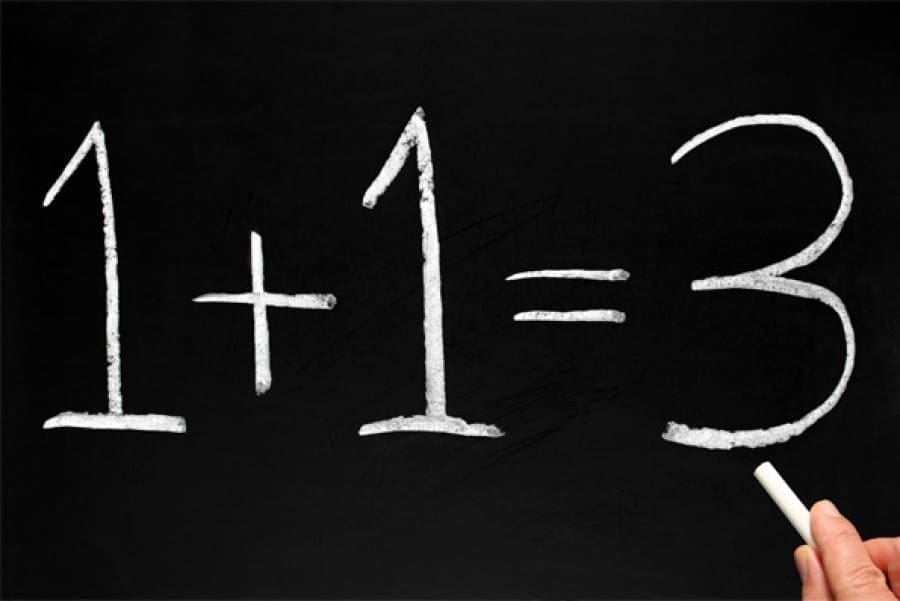Misleading Product Claims You Should Know About
 5-Hour Energy: The product claims to give you energy with “No Crash Later,” which is constantly thrown in our face on TV commercials and ads every day. The fine print actually reads “no crash means no sugar crash,” but since it actually contains no sugar that would not have been possible in the first place. However, we as consumers are tricked into believing that there is no caffeine crash. In 2008, the results of an unpublished 2007 study by Living Essentials (who makes 5-Hour Energy) came out noting that 24% of participants experienced a “moderately severe crash that left them extremely tired and in need of rest.” I think I’ll get my energy elsewhere.
5-Hour Energy: The product claims to give you energy with “No Crash Later,” which is constantly thrown in our face on TV commercials and ads every day. The fine print actually reads “no crash means no sugar crash,” but since it actually contains no sugar that would not have been possible in the first place. However, we as consumers are tricked into believing that there is no caffeine crash. In 2008, the results of an unpublished 2007 study by Living Essentials (who makes 5-Hour Energy) came out noting that 24% of participants experienced a “moderately severe crash that left them extremely tired and in need of rest.” I think I’ll get my energy elsewhere.
Airborne:Â It’s been heard through the grapevine that Airborne will simply get rid of your cold, like a miracle. In fact, their original ad actually read: “Miracle Cold Buster.” Because this claim was not backed by the FTC or a clinical trail by doctors, Airborne paid a 23.3 million dollar penalty for the false claim. The ad was then changed to, “Immune Support Supplement.” So many people are lead to believe that they can just keep on with their busy schedule, take some Airborne and get back on track. However better ways to get rid of a cold include: Rest, hydrating, consuming foods rich in vitamin C, washing your mouth with salt water, and keeping your stress level down (mentally and physically). Oh and did I mention rest?
 Naked Juice:Â Perhaps the most recent product controversy, PepsiCo was hit with a 9 million class action lawsuit this year because their label read “All Natural.” The FDA has discovered that the product contained genetically modified soy and the nutrients actually didn’t come fruits and veggies (they were added separately). The FDA may not have initially missed the nutrition facts, but they definitely missed the advertising on the front label. There are no shortcuts to a healthy diet after all.
Naked Juice:Â Perhaps the most recent product controversy, PepsiCo was hit with a 9 million class action lawsuit this year because their label read “All Natural.” The FDA has discovered that the product contained genetically modified soy and the nutrients actually didn’t come fruits and veggies (they were added separately). The FDA may not have initially missed the nutrition facts, but they definitely missed the advertising on the front label. There are no shortcuts to a healthy diet after all.
Vitamin Water: I personally know dozens of Vitamin Water drinkers, which is why this one might stir up the most controversy. Vitamin Water gives us the false impression that it’s healthy for us, when in fact is has more sugars and calories than a 12 oz. can of Coke; one Vitamin Water contains 33 grams of sugar and over 120 calories. The second listed ingredient is crystalline fructose which is a form of, you guessed it, sugar. Maybe we should start calling Coke water, too.
 Sugar-Free/Fat-Free: This is a claim I truly despise. While the claim may not be a lie, it couldn’t be more misleading. Many fat-free products include excess sugar to replace fats and many sugar-free products include fat to compensate for lost sugar (both include nasty chemical additives). Gary Taubes and Dr Peter Attia of Nutrition Science Initiative say that the additives and sugars that are used in fat-free products contribute to obesity by driving insulin level resistance. Check those nutrition labels and compare your fat-free product to its fat containing counterpart; you will notice dozens of chemical ingredients that you can’t even pronounce in the fat-free version. Just go for the real thing and use portion control.
Sugar-Free/Fat-Free: This is a claim I truly despise. While the claim may not be a lie, it couldn’t be more misleading. Many fat-free products include excess sugar to replace fats and many sugar-free products include fat to compensate for lost sugar (both include nasty chemical additives). Gary Taubes and Dr Peter Attia of Nutrition Science Initiative say that the additives and sugars that are used in fat-free products contribute to obesity by driving insulin level resistance. Check those nutrition labels and compare your fat-free product to its fat containing counterpart; you will notice dozens of chemical ingredients that you can’t even pronounce in the fat-free version. Just go for the real thing and use portion control.
Contains Whole Wheat:Â If it doesn’t say 100% whole wheat somewhere on the label, the chances are you are probably just mostly getting white bread- plain and simple. Food labels will try to deceive you by printing, “contains whole gains,” in order to make you believe it’s good for you. Keep your eyes open at the grocery store next time.
Michael is the Editor-in-Chief of New Jersey Digest and Creative Director at X Factor Media. A Bergen County native, he discovered his passion for storytelling while studying at Montclair State University. In addition to his work in journalism and media, Michael is an avid fiction writer. Outside the office, he enjoys kayaking, a bold glass of Nebbiolo, and the fine art of over-editing.
- Michael Scivolihttps://thedigestonline.com/author/mscivoli/
- Michael Scivolihttps://thedigestonline.com/author/mscivoli/
- Michael Scivolihttps://thedigestonline.com/author/mscivoli/
- Michael Scivolihttps://thedigestonline.com/author/mscivoli/




